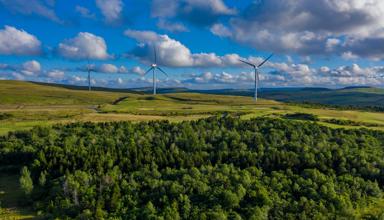22 May is International Day for Biodiversity, marking the anniversary of the adoption of the Convention on Biological Diversity in 1992. This In Brief article looks at the state of nature in Wales and plans for its restoration.
The 2023 State of Nature report, which is compiled by environmental organisations, found that 18% of monitored species are threatened with extinction in Wales. Our Biodiversity 2023 research briefing summed up the state of Welsh biodiversity and the current approach to protecting it.
The Senedd voted to declare a nature emergency in 2021, calling on the Welsh to Government to establish legally binding biodiversity restoration targets, and a permanent environmental watchdog to replace arrangements that have been lost when the UK left the European Union.
In 2022, world governments agreed the Kunming-Montreal Global Biodiversity Framework (GBF) at the 15th Conference of Parties to the UN Convention on Biological Diversity (COP15). The GBF consists of 23 targets and four goals for biodiversity. Its mission is to “halt and reverse biodiversity loss” by 2030, and it envisions a world “living in harmony with nature” by 2050.

Our COP15 article summarises the outcomes of the conference, including the ’30 by 30’ promise to protect 30% of land, inland waterways, and seas for nature by 2030. We also reviewed progress towards the implementation of GBF goals in Wales, and further developments, following the conclusion of COP16 in 2024.
Wales contributes to the UK’s submissions to meet its international biodiversity obligations, and the Welsh Government has committed to implementing the GBF. However, the Senedd’s Climate Change, Environment, and Infrastructure (CCEI) Committee’s recent Biodiversity inquiry report highlighted a lack of implementation in the Welsh Government’s nature ambitions, as well as a need for more resource to ensure delivery. It concluded that meeting the global commitment “will be an extraordinary challenge”.
The Welsh Government is expected to introduce a new environment Bill in June. Based on last year’s White Paper, the Bill is likely to introduce statutory targets to improve biodiversity, environmental principles to underpin decision-making, and to establish a permanent environmental governance body.
The other UK nations have already established environmental governance bodies, which aim to hold public authorities to account on environmental performance. Our recent research briefing compared the existing governance bodies to the Welsh Government’s proposals.
The other two parts of the White Paper comprised a biodiversity framework and environmental principles. A statutory biodiversity framework, including specific targets for restoration and improvement, would aim to hold the Welsh Government to account on restoring nature. Overarching environmental principles would seek to underpin future policy decision-making. Our research briefing explores the Welsh Government’s plans for both, and compares them to the other UK nations.
The Welsh Government is expected to introduce its environment Bill to the Senedd this summer. We’ll be providing resources to support scrutiny as it make its way through the legislative process.
Article by Matthew Sutton, Senedd Research, Welsh Parliament






